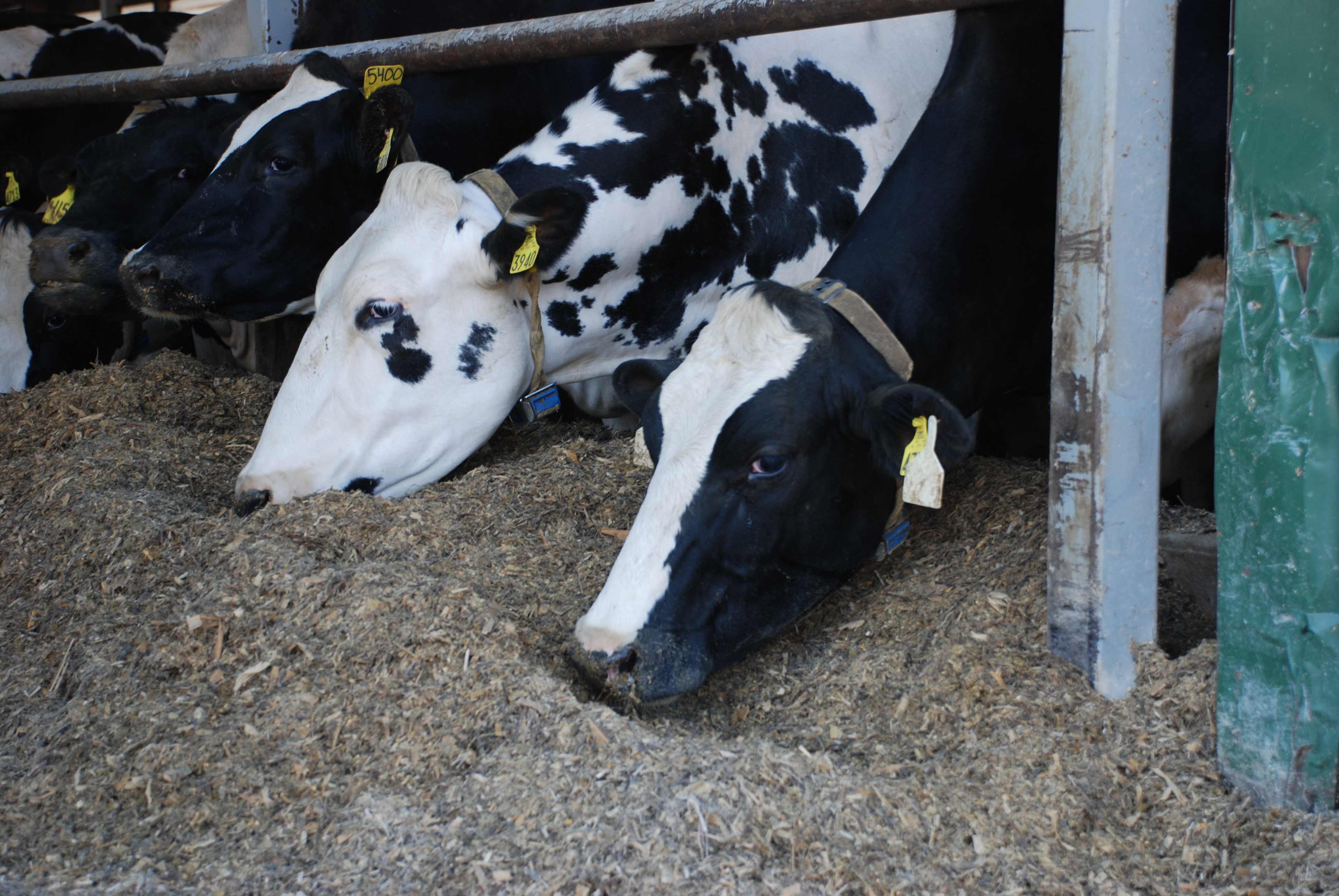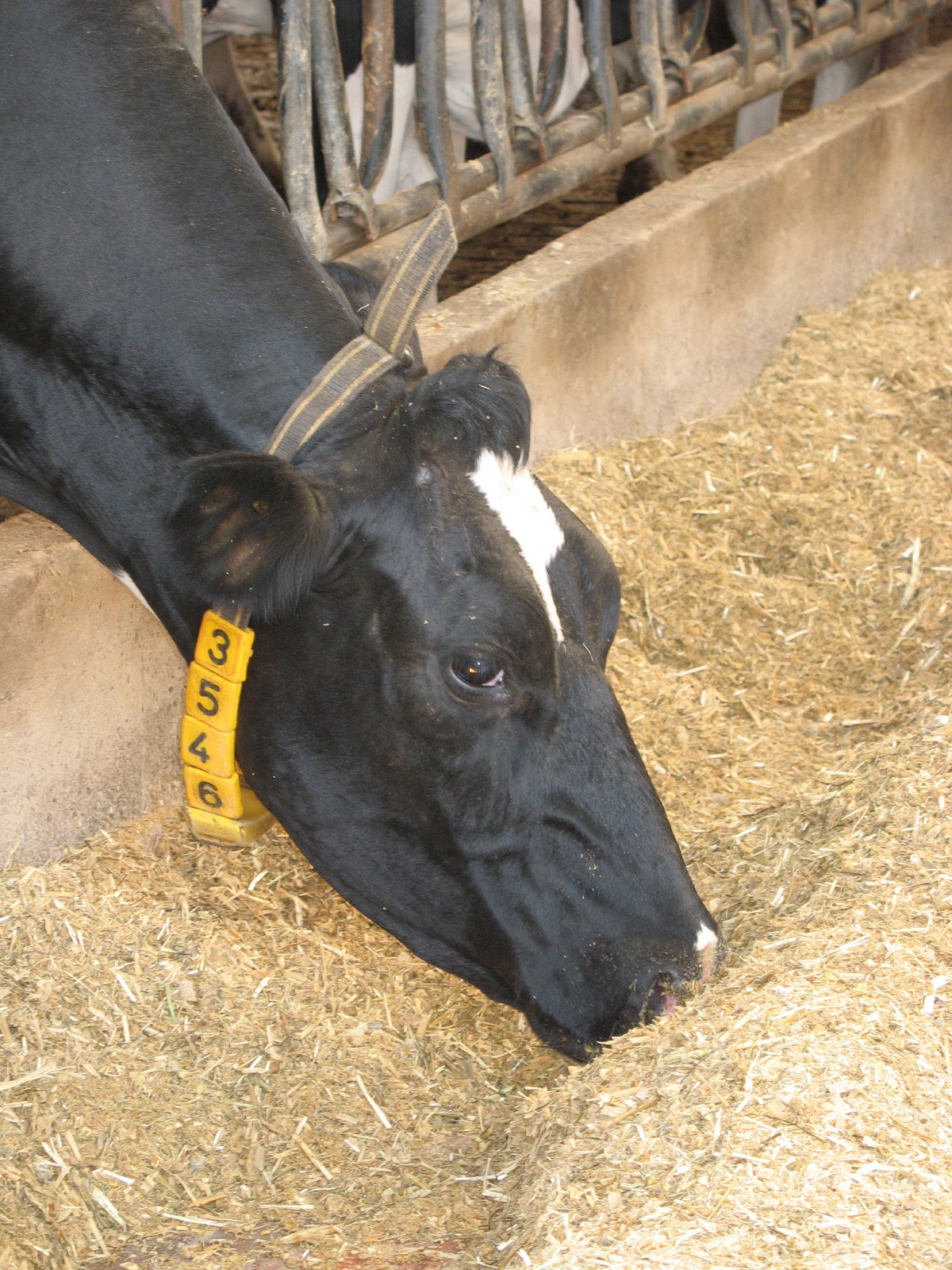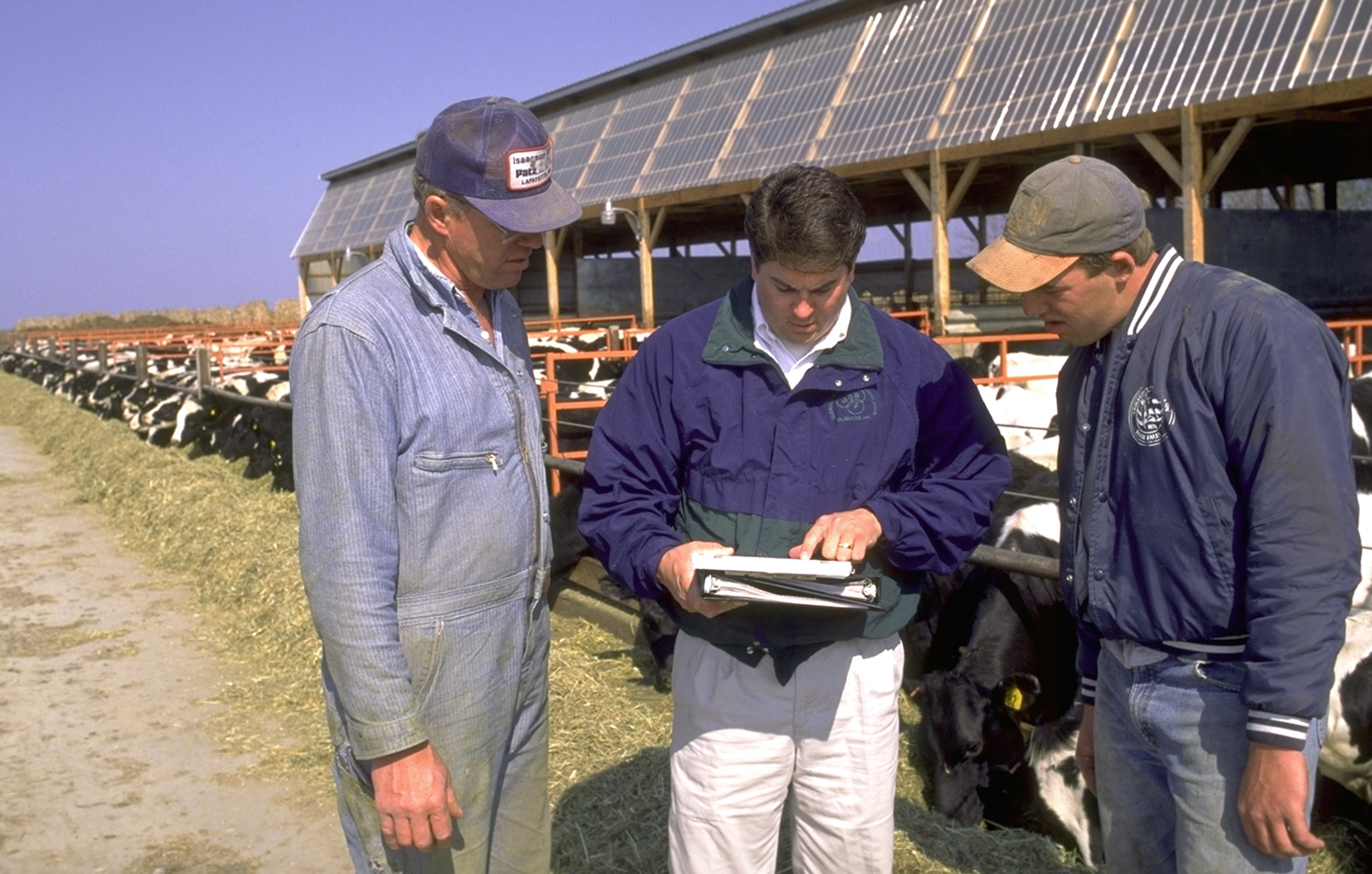Getting Started
Q: What is Calibrate® technologies?
A:Calibrate® technologies is a patented feed ingredient analysis program that provides insights into ruminal starch and fiber digestibility in dairy rations.
Q:What makes Calibrate® different that other programs or tests available today?
A: Calibrate® technologies delivers:
1. Industry leading digestibility information - Calibrate® technology is backed by more than ten years of research and over 22,000 in vitro rumen digestible starch and fiber test samples.
2. Faster results – Calibrate® NIR technology provides some of the fastest starch and fiber digestibility information available. Test results can become available within 48 hours after submission.

3. Simple to use – The Calibrate® program was designed so that producers and their nutritionists easily apply the information and make real time adjustments to their rations. Using the proprietary Calibrate® online calculator, producers or their nutritionists can utilize their own specific ration information and Calibrate test results to make even more informed ration decisions.
4. Actionable results - The Calibrate® nutritional calculator provides information on which to base adjustments in response to variation in ruminal digestibility. Not only will you have the best possible information on starch and fiber digestibility, you will know how to use that information.
5. Reliable Information - A strict quality control and quality assurance program at our NIR and in vitro labs assures our customers are provided accurate and reliable digestibility results.
Q:Why would a producer want to use Calibrate®?
A:The Calibrate® program can have a wide variety of benefits for a producer. Below are some reasons that current customers have told us why they use the Calibrate® program:
1. Diet cost savings (substituting high cost ingredients with lower cost ingredients)
2. Acre management (informed/improved economic evaluations)
3. Input management
• Hybrid and specie selection
• Harvest management
• Storage management
4. Increasing dietary energy safely
5. Milk composition diagnosis
6. Ingredient inventory management and availability
7. Increasing dry matter intake (DMI) and production
8. Increasing feed efficiency
9. Increasing dietary forage levels
10. Absence of sub-acute ruminal acidosis
Q:How does it work?
A:First, producers or nutritionists submit samples of starch and fiber containing forage and grain ingredients to a certified Calibrate® laboratory to determine the ruminal starch and fiber digestibility. Ingredient starch digestibility is then ranked on a proprietary GPN™ scoring index from 1 (slow) to 11 (fast) for maximum accuracy. Fiber digestibility is ranked on a proprietary FPN™ scoring index from 60 (slow or low ruminal digestion) to 180 (fast or high ruminal digestion).
Second, producers and nutritionists analyze their diets with the GPN™ and FPN™ results using the Calibrate® online nutritional calculator. Developed over years of research, the calculator assigns the herd starch and fiber scores for digestion. Based on these scores producers and their nutritionists make improved decisions on how best to manage starch and fiber digestion to meet the goals of the producer’s operation
Q: How was it developed?
A:Calibrate® technology is backed by more than ten years of research. Our NIR calibrations have been developed with over 22,000 in vitro rumen digestible starch and fiber test samples.
Q:What herd size or type can benefit from Calibrate® technologies?
A: Regardless of herd size or type, all operations experience varying ration ingredients and digestibility issues. Calibrate® technologies can develop a customized plan to manage digestibility that meets each dairy’s unique needs.
Q:Who do I contact to learn more about Calibrate® technology?
A: Contact us at
info@calibratetechnologies.com or call 877 -595-1361 and a member of the Calibrate® team will set up a consultation with you to discuss how Calibrate® technologies can help your operation.

_____________________________________________________________________
What to test and how often to test
Q: Which dairy ration ingredients can be sampled with Calibrate® technologies?
A:Starch test: Feed ingredients such as corn silage, corn (high-moisture, dry, ground and flaked), barley, distiller’s grain, hominy, bakery and other starch-containing ingredients. Fiber test: Feed ingredients such alfalfa hay, haylage, sorghum silage, grass silage, corn silage, straw and other fiber-containing forages. Fibrous byproducts are not tested for FPN since they have minimal contributions to rumen fill.
Q:How often should I sample?
A: Your Calibrate® consultant will work with you and your nutritionist to develop a customized work plan for your dairy identifying which and when samples should be taken. In general most fermented feeds like haylage, corn silage and high moisture shell corn should be sampled every two weeks. Other ingredients with a high amount of variation or high turnover may also need to be sampled every two weeks. The remainder of a dairy’s feedstuffs, that have a slower turnover, will typically be sampled once per month.
Q: Why do we not test the TMR?
A: There are two major reasons that testing a TMR is not recommended. First, it is very difficult to obtain a representative sample of a TMR and keep it representative from the point of collection, through processing and weighing at the analytical balance.
Second, without the individual ingredient data, there are no values from which to base ration adjustments. NIR predictions on TMR samples are not always accurate, because of their heterogeneous nature. Therefore, they have to be sent to the in vitro lab for validation, resulting in reporting delays.
___________________________________________________________________________________________
Applying the results
Q:What causes starch variation in corn?
A:Hybrid genetics, growing environment and harvest conditions are the primary factors in starch variability.

Q:What causes variation in starch digestibility in feedstuffs?
A: Ruminal starch digestion can be influenced by many things including:
1. Grain source (corn, barley, wheat, milo, etc.)
2. Moisture content (dry shelled vs. high moisture corn)
3. Grain processing (coarse ground vs. flaked)
4. Endosperm type
5. Level of grain in the diet (20 vs. 30% starch)
6. Total dietary dry matter intake (low vs. high)
Q:What is GPN™?
A: GPN™ is a measurement that reflects the ruminal digestion of starch in an ingredient which is indexed on a proprietary scale from 1 to 11 where 1 equals slow to digest and 11 equals fast to digest.
Q:What are average GPN™ scores?
A: Typical scores are 3 for dry corn, 5 for high-moisture corn and 8 for corn silage. However, there can be variation between geographic regions due to changes in growing conditions, water availability and maturity at harvest.
Q: How do GPN™ scores influence dairy ration adjustments?
A: With lower GPN™ scores on all starch sources in the diet, more starch can, and should, be fed to maintain milk volume and produce higher component yields.
Q: Can corn silage vary over the year, in starch amount and rumen digestibility, even if it is all from the same bunker or bag?
A: There can be a tremendous amount of variation in digestibility of corn silage caused by a wide variety of factors (growing season, within field variation, harvest management, etc.). It is not uncommon to observe crude starch levels varying from 22 - 36% on one farm in one pit. Additionally, high-moisture corn and corn silage “speed up” in digestibility during storage and test higher in GPN™ over time.
Q: What is Fiber?
A: Fiber is the crude neutral detergent fiber (NDF) or cell wall portion of an ingredient.
Q: What causes variation in fiber digestibility?
A: Maturity at harvest is a significant contributor to variation in fiber digestibility. Other influencers to fiber digestibility include: genetics, growing environment and harvest management.
Q:What is FPN ™?
A: FPN™ is a measurement which reflects the ruminal digestion of NDF in an ingredient which is indexed on a proprietary scale from 60 (low ruminal digestion) to 180 (high ruminal digestion).
Q: What are average FPN™ scores?
A: Alfalfa hay tends to have an average FPN™ of 123 and varies from 102 to 144. Corn Silage averages 147 FPN™ and varies from 126 to 167.